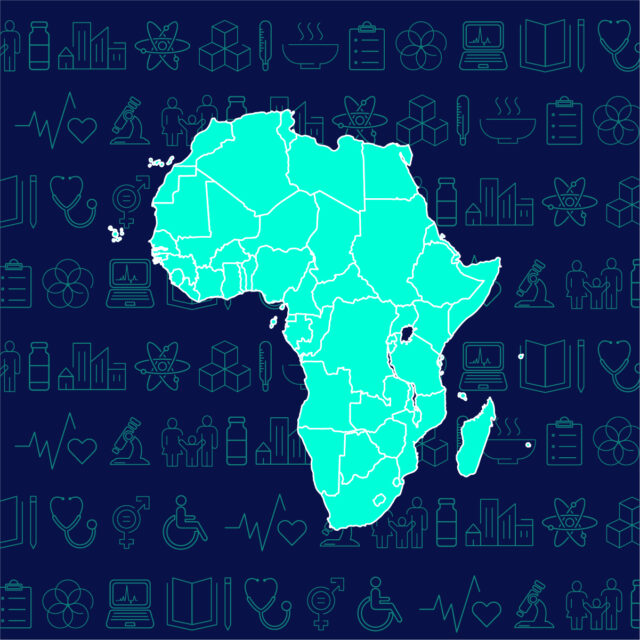A roundup of the latest news, stats, and analysis of COVID-19’s impact in Africa. Read on for more about which country has reached 1 million cases and Tanzania’s continued pandemic silence. But first, how to prevent a vaccine apartheid.
Top news
Catastrophic moral failure: UNAIDS Director Winnie Byanyima recently called out the emerging ‘“Vaccine Apartheid” as rich countries hoard vaccine supplies. WHO Director General Tedros said “We are on the brink of a catastrophic moral failure.” The Economic Intelligence Unit predicts more than 85 countries may have to wait until 2023 for widespread coverage.
28 days later: A new data viz from ONE shows when countries will have vaccinated all their vulnerable populations, based on current trajectories. This is when governments should prioritize giving doses to health workers and elderly people in low-income countries to minimize deaths and the risk of further mutations as well as avert a major economic fallout. As of today, two countries have hit the target, and one G7 country is a week out. All of Africa is red meaning no data showing any progress.
Shoot in the foot: A major new study from the International Chamber of Commerce shows that vaccine hoarding could cost the global economy up to $9.2 trillion. Rich countries will bear half those costs because of supply chain disruptions and demand shocks, as ONE Policy Director David McNair explained to Canada’s Global News.
Furious: One senior African policymaker was overheard saying he had never seen African leaders so angry at western leadership. Rightly so: Northeastern University estimates the status quo could double the number of deaths before the pandemic ends. Some African countries are turning to China and Russia for doses. That Russia’s Sputnik V vaccine has a 91.6% efficiency rate is encouraging news for epidemiologists; less so for western diplomats.
Take (back) control: Africa will get 1 billion doses by December. In addition to COVAX, AU vaccine envoy, Strive Masiyiwa, has helped raised billions in credit lines from AfreximBank and is negotiating directly with pharma companies. When the doses come through, they will be available on the AU’s joint procurement platform for African countries to draw on. Rich countries should support this strategy with capital and fully fund COVAX.
Redeeming quality: The European Commission last week undermined its own Brexit deal in an effort to safeguard its own vaccine supply. The EC insisted lower middle income countries would be exempted from any export restrictions. Insiders tell us France was the key champion for redistributing vaccines to Africa through COVAX.
Don’t trip Ursula: On Thursday, officials at the World Trade Organisation meet to discuss a South African-Indian proposal to temporarily suspend intellectual property rights for COVID treatments and vaccines. With over 100 countries in favor, a recent endorsement from Italy’s G20 presidency and a surprise statement on IP from Emmanuel Macron this week, all eyes are on the EU…Go on Ursula!
The right side of history: On Sunday the Irish Taoiseach, Micheál Martin told the BBC “all of us have a collective responsibility to ensure that the developing world, and particularly frontline workers are vaccinated…there’s very little point in the virus raging across developing countries while we vaccinate 100 per cent here, because that would mean more mutations.” Meanwhile, Norway followed Justin Trudeau in putting its money where its mouth is. International Development Minister, Dag Inge Ulstein tweeted the country’s commitment to donate extra doses to the WHO at the same time as vaccinating Norwegians. Timing matters. Gold star.
Anti (vaccine) apartheid: South Africa currently tops ONE’s Vaccine Access Test, which ranks countries and companies on how they are prioritising vaccine equity.
The numbers
-
- $1 billion: the number of vaccine doses negotiated by the AU by December 2021.1 million doses arrived in South Africa this week. Guinea, the first Low Income Country to start vaccinations, had only vaccinated 55 people on 26th Jan.
- $1.16 billion: how much Ethiopia owes in debt service in the first six months of 2021. Ethiopia joined Chad in requesting debt relief from the G20’s common framework this week.
- $7: what Uganda is paying per dose of the Astrazeneca Vaccine (the firm is charging the EU $2.15 and South Africa $5.25).
More reads
- Leaders need to pursue urgent action to contain the economic damage and capitalize on the Africa’s underlying strengths. ONE’s David McNair outlines three “no regret” decisions for financing Africa’s post COVID future.
- Johnson and Johnsons’s vaccine has the potential to be a game changer in Africa. Better suited to low-income settings, but less effective than other vaccines. ONE’s Jenny Ottenhoff lays out the pros and cons.
- Africa has not been immune to vaccine hesitancy and misinformation campaigns. African governments must implement effective vaccination information policies in time to curb COVID-19.
- The Tanzanian government has been silent on the coronavirus since June with no data released to the public on infections or deaths. Tanzanian citizens, journalists, and medical professionals are barred from releasing COVID-19 data that the government has not verified.
- Chad is the first country to request debt restructuring under the G20-Paris Club common framework. The country continues to struggle with a high debt burden against a backdrop of the coronavirus crisis and low prices for its major export, oil.
- The circle of life and the impact of COVID-19 pit fishermen and hippos against one another. Heavy rains around Kenya’s Lake Naivasha have swollen the lake to its largest size in nearly a century, and flooded hippos grazing land with water encroaching on the farms and homes around the lake.



